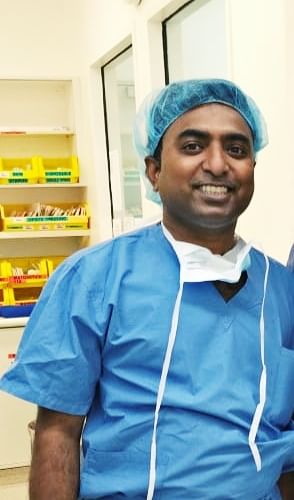Get the App
For Doctors
Login/Sign-up
Health Feed
Find Doctors
Health Packages
AllQ&AsTipsQuizzes
Tumors Tips
Last Updated: 6 years ago• Featured Tip
Share
Bookmark
Report
Grading of brain cancer is entirely different as compared to the staging of other cancers in the body. Cancer in the breast, lung, colon etc. are staged depending on the possible spread, location of a tumor and lymph node involvement etc. However, brain tumors are graded based on the aggressiveness of the tumor cells under a microscope. The resect ability and the grade of the tumor cells guide a doctor on the treatment decisions. The decision of a brain surgery depends on factors such as the loc...more
Last Updated: 6 years ago• Featured Tip
Share
Bookmark
Report
Brain cancer is a disease of the brain in which cancer cells (malignant cells) arise in the brain tissue. Cancer cells grow to form a mass of cancer tissue (tumor) that interferes with brain functions such as muscle control, sensation, memory, and other normal body functions. Tumors composed of cancer cells are called malignant tumors, and those composed of mainly non-cancerous cells are called benign tumors. Cancer cells that develop from brain tissue are called primary brain tumors while tumor...more
Last Updated: 6 years ago• Featured Tip
Share
Bookmark
Report
Remember the sensation similar to that of a warm liquid flooding your tongue when you smell a deliciously baked chocolate cake? Or a freshly baked brown bread early in the morning? That is your saliva. The salivary glands present in the inner linings of the lips, cheeks and the mouth produce saliva. Saliva protects one from tooth decay, keeps the mouth moist and helps in the digestive process. Any disease that affects the saliva gland comes under the domain of salivary gland disorders .
more
Last Updated: 6 years ago• Featured Tip
Share
Bookmark
Report
The bladder is a hollow storage organ that collects urine from the kidneys and stores it until it can be passed out of the body through the urethra during the process of micturition or urination. It has a thin inner lining of cells called urothelial cells and a thick muscular wall, which exerts pressure to push the urine out of the body.
Causes of Bladder Tumors
In most cases, the bladder tumour develops on the inner layer due to a combination of some of the following factors.<...more
Causes of Bladder Tumors
In most cases, the bladder tumour develops on the inner layer due to a combination of some of the following factors.<...more
Last Updated: 6 years ago• Featured Tip
Share
Bookmark
Report
More than 500 people are diagnosed with brain tumour every day worldwide. The number of patients with secondary tumours is even higher than 500. It is common across all ages. A primary brain tumour is a tumour that begins in the brain. It can be either malignant, i.e., contains cancer cells or benign, i.e., does not contain cancer cells.
A secondary brain tumour is usually cancerous. It starts anywhere in the body and sends cancerous cells which grow in the brain.
Here are a fe...more
A secondary brain tumour is usually cancerous. It starts anywhere in the body and sends cancerous cells which grow in the brain.
Here are a fe...more
Last Updated: 6 years ago• Featured Tip
Share
Bookmark
Report
Salivary glands play a useful part in the human body. They secrete saliva, which performs tasks like helping with digesting food, keeping your mouth from getting dry and protecting your teeth from germs. There are numerous salivary glands in your body, spreading through the entire oral and throat region. They are present at the base of your mouth, below the tongue and on the insides of the cheeks. They are also present all along your throat.
Disorders in the salivary glands can be painf...more
Disorders in the salivary glands can be painf...more
Last Updated: 6 years ago• Featured Tip
Share
Bookmark
Report
Cancer that originates in the bones of a human body is referred to as bone cancer. Any bone could come under the threat of this disease but generally the longer bones of your body, so to say the bones of your limbs, are at a greater risk.
A few factors that might push you an inch closer to bone cancer are;
1. Genes could jinx your health- A few typical genetic syndromes could increase a person's chances of contracting bone cancer. These syndromes could have been active in any...more
A few factors that might push you an inch closer to bone cancer are;
1. Genes could jinx your health- A few typical genetic syndromes could increase a person's chances of contracting bone cancer. These syndromes could have been active in any...more
Last Updated: 6 years ago• Featured Tip
Share
Bookmark
Report
Brain cancer is a disease of the brain in which cancer cells (malignant cells) arise in the brain tissue. Cancer cells grow to form a mass of cancer tissue (tumor) that interferes with brain functions such as muscle control, sensation, memory, and other normal body functions. Tumors composed of cancer cells are called malignant tumors, and those composed of mainly non-cancerous cells are called benign tumors. Cancer cells that develop from brain tissue are called primary brain tumors while tumor...more
Last Updated: 6 years ago• Featured Tip
Share
Bookmark
Report
Gestational trophoblastic disease is a rare condition. It only happens when trophoblast cells abnormally grow inside the uterus. Also, this only happens after conception. These cells surround the egg which has been fertilized in the uterus. It is also worth note that the trophoblast cells usually connect the fertilized eggs to the uterus' walls and also form a part of the placenta. It is only when there is a tumor that this disease is diagnosed. There are many forms of gestational trophoblastic ...more
Last Updated: 6 years ago• Featured Tip
Share
Bookmark
Report
Collectively grouped under the Ewing sarcoma family of tumors, Ewing's sarcoma is the second most common primary bone cancer occurring predominantly in children and in adolescents. Very rarely is it experienced in adults above the age of 30.
Typically forming in the bones of the chest, pelvis, head, back or trunk and in the long bones of the arms and legs, Ewing's sarcoma is believed to originate in certain kinds of primitive cells. When it begins to affect similar kind of cells found o...more
Typically forming in the bones of the chest, pelvis, head, back or trunk and in the long bones of the arms and legs, Ewing's sarcoma is believed to originate in certain kinds of primitive cells. When it begins to affect similar kind of cells found o...more
Book appointment with top doctors for Tumors treatment
View fees, clinic timings and reviews
Ask a free question
Get FREE multiple opinions from Doctors
posted anonymously




















